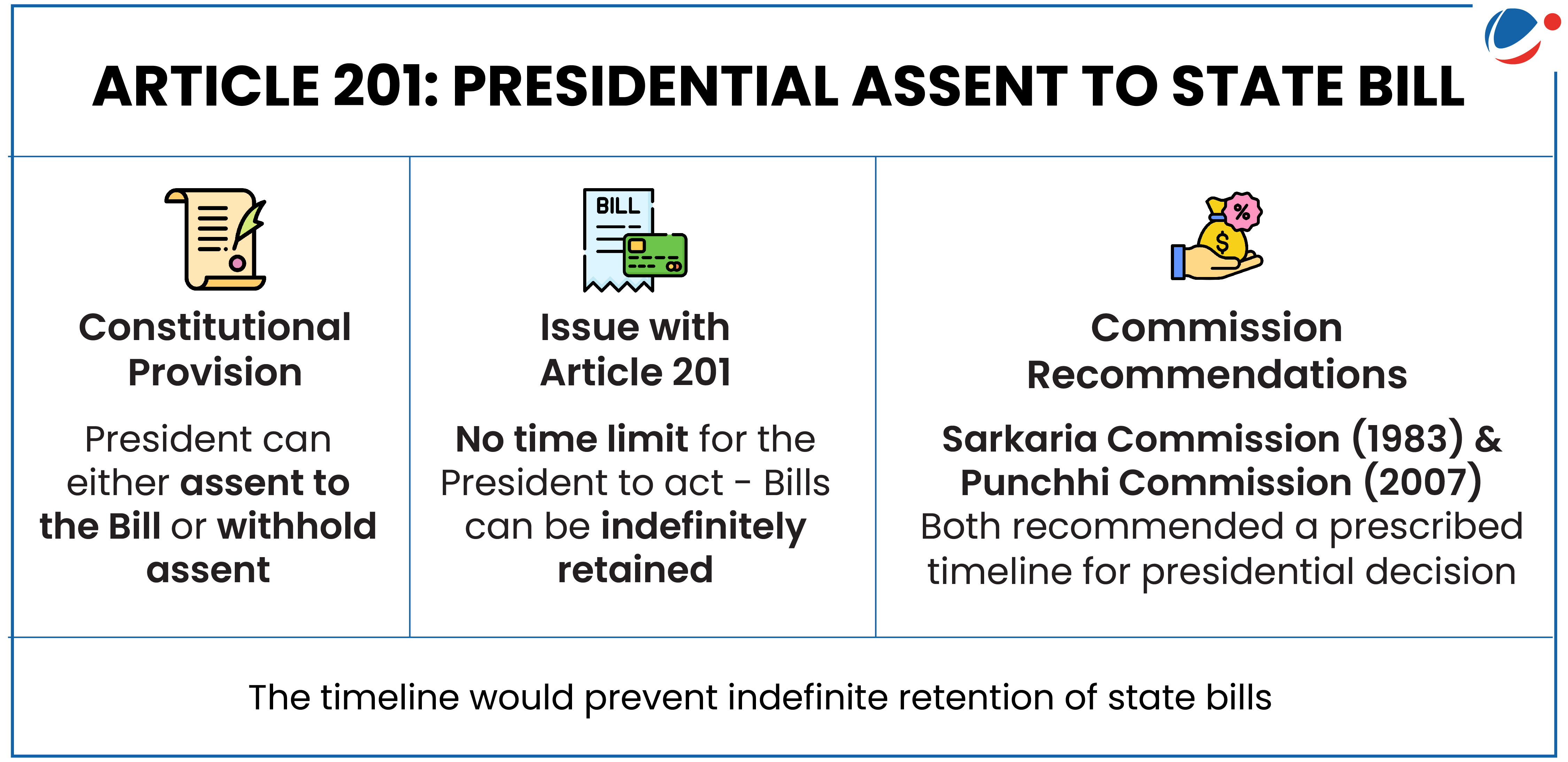In the landmark 'State of Tamil Nadu vs Governor of Tamil Nadu' case, SC has set timeline for the President to act as per Article 201 of the Constitution on the Bills which Governor has reserved for the President's assent.
- In the judgment, SC has also set timelines for Governor's actions on Bills under Article 200.

Key Observations of the Case by SC
- Time Limit for Decision: President must decide within 3 months on Bills reserved for him.
- President has to declare reasons for withholding of assent, which must be communicated to State Government.
- States are required co-operate: By answering queries and consider suggestions made by Central government expeditiously.
- Issuance of writ of mandamus: If there is no action by President within the time-limit, the States are entitled to file writ petitions against President.
- No absolute veto for President: President cannot exercise "absolute veto" by indefinitely sitting over Bills.
- Absolute Veto: Power of President to withhold the assent to the bill.
- Pre-Legislation Consultation: States must consult Central government before introducing bills requiring Presidential assent. Central government should consider state proposals with due regard and expediency.
- Article 143: President ought to seek Court's advice if Bill is reserved on the ground of unconstitutionality.





